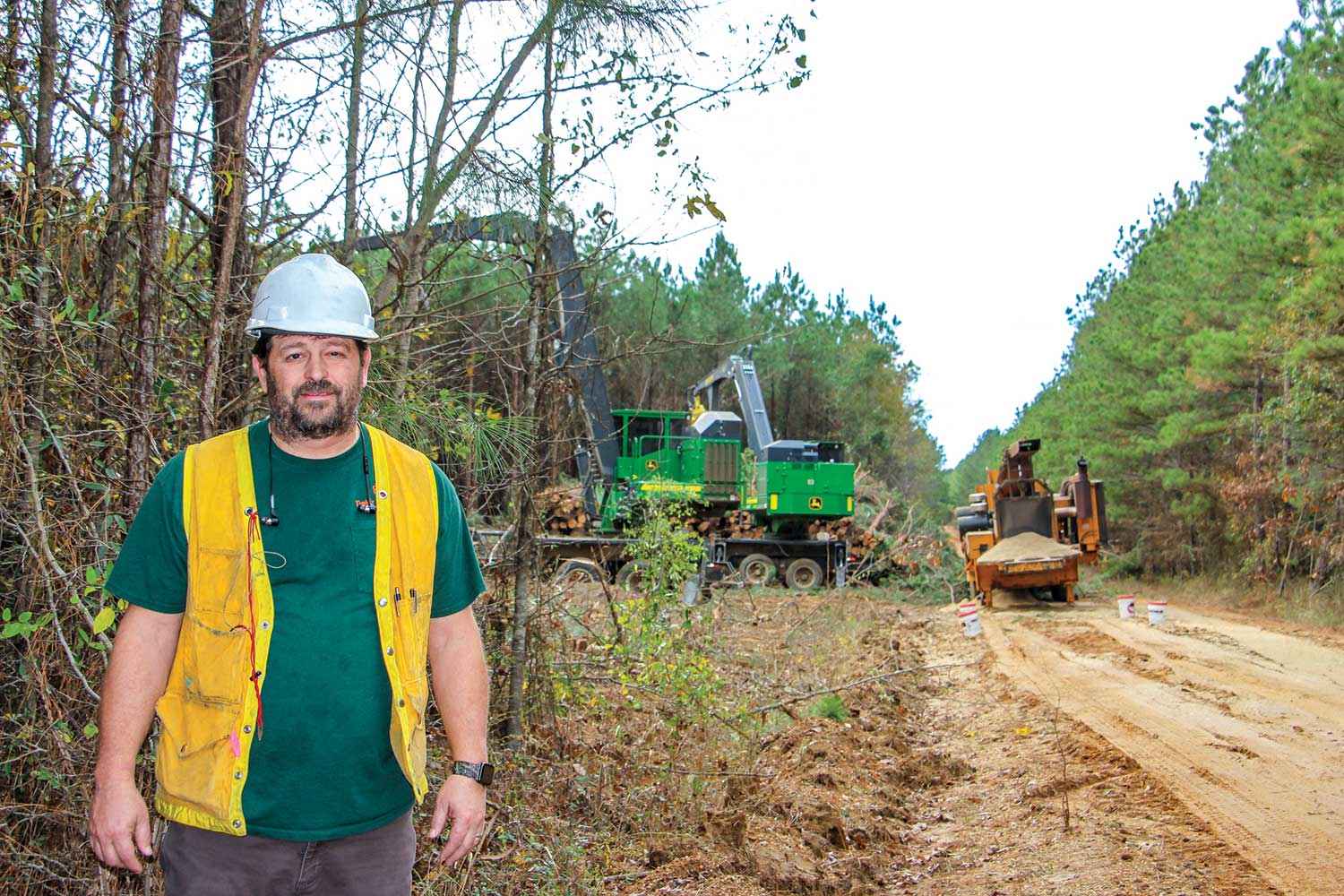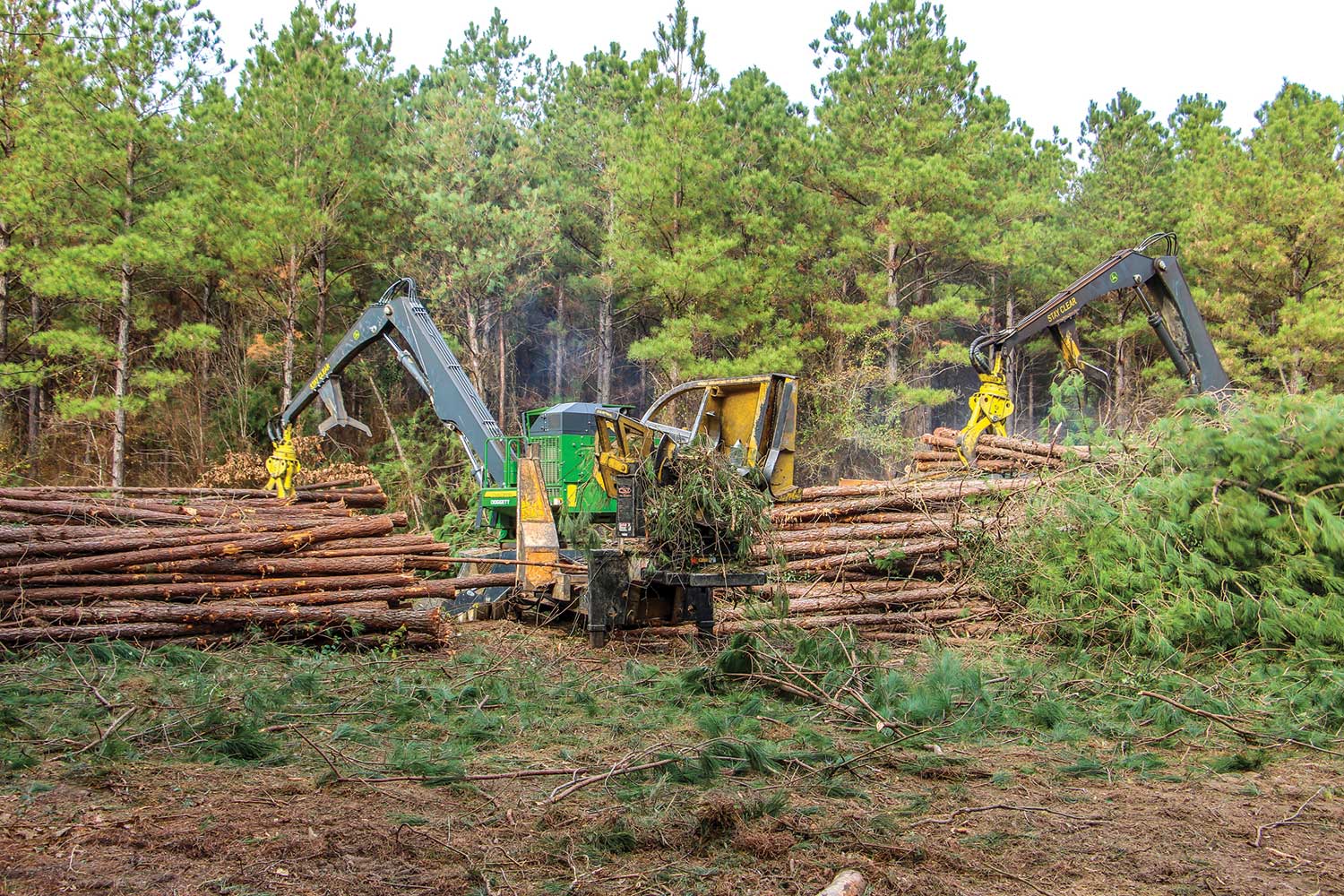Inside this issue
From the Editors
Cover Story
In the News
- Wood Bio 2022 Dates Announced
- COVID Relief Act Includes Loggers
- Highland Receives Capital Infusion
- Peak Renewables Plans Pellet Mill
- South Africa Pellet Plant Has New Life
- Pinnacle-Tolko Starts High Level Mill
- Active Energy Gears Up For CoalSwitch
- Finite Carbon Receives New Stakeholder
- Enviva Reports New Blockchain Program
- Arizona Restoration Remains Uncertain
- CEOs Address Climate Change
- Arauco Reports CO2 Net Surplus
Wood Bio Guide 2021
The Wood Bio Guide is dedicated to equipment manufacturers, suppliers, products and services for the wood-to-energy industries, including wood pellets, biomass power, biofuels, in-woods chipping and biomass procurement.
Product News
- Baker-Rullman Offers Drum Dryer Efficiency
- Hybrid Solar-Biomass Plant Is Running
- Crouse Represents Bandit In Arkansas
- Nokian Starts Up R&D Center
- Tigercat Expands Mulcher Lineup
- Remsoft Partners With ForestX
- Deere Shovel Loader Offers Versatility
Find Us On Social
From the Editors
During the past year, as the coronavirus pandemic has revealed strengths and weaknesses throughout the greater economy, the importance of supply chains has been emphasized repeatedly.
Establishing and maintaining consistent and reliable supply chains is critical when pursuing any type of logistical success.
The ability to develop and operate productive and efficient supply chains is especially important in the wood bioenergy industry, part of the global market for energy consumption that must meet consumer demand.
This issue underlines the importance of maintaining supply chains in two seemingly disparate news items: Passage of the Loggers Relief Act and ongoing efforts to implement large scale forest rehab efforts in Arizona. In each case, the importance of supply chains is prominent.
Included as part of the sweeping federal coronavirus relief legislation that passed Congress and was signed by the President at the end of 2020, the Loggers Relief Act provides funds for contractors affected by the virus, but more importantly it provides a level of even footing for the logging industry as a commodity producer, much like other agricultural entities, when it comes to assistance.
The legislation provides relief funds that will help maintain the strength of fiber supply chains when the commodity fiber markets they serve undergo changes. As American Loggers Council officials say, the program isn’t to make loggers whole, but instead provide breathing room when market forces upend business plans—just like many farm programs.
These supply chains are not only critical for fiber and log flows to wood-consuming businesses of all kinds, but are also sources of good-paying rural jobs that are in short supply in many areas.
From Left: Rich Donnell, Editor-In-Chief; Jessica Johnson, Managing Editor; Patrick Dunning, Associate Editor; David Abbott, Senior Associate Editor; Dan Shell, Senior Editor
Showing that happens when supply chains are allowed to wither is the situation in Arizona, where officials continue to grapple with forest health goals to “treat” more than 2 million acres of public land that are in danger of wildfire. In the process of improving forest health, the project will produce billions of board feet of solid wood and mountains, no kidding, mountains of biomass and chips.
Of course, that’s only if there’s a supply chain in place to do it, which there’s not right now.
In Arizona the supply chain suffered differently, as federal timber sales were drastically reduced to the point that the infrastructure to handle them, from the forest and stump to the mill, had almost disappeared over a 20+ year period.
Now, issues of forest health in the state are requiring a massive investment in supply chain capacity in all areas, from timber harvesting to hauling and processing. Again, emphasizing the importance of healthy supply chains.
As this issue’s cover story feature shows the efficient work of contractor Clint Horn in a key part of the biomass supply chain, it’s important to remember that before the BTUs can be burned for heat and light, a healthy supply chain must put them in place.
Cover Story: All Focused On Chips
Article by Jessica Johnson, Managing Editor, Wood Bioenergy
WARREN, Arkansas – Clint Horn, who has an Associate’s, Bachelors and Masters in Forestry (Penn State University and Mississippi State University, respectively), has seen a lot in his 30 plus years in the industry. He remembers coming up in forestry when the spotted owl conservation efforts dominated the news cycle and “people were chaining themselves to trees in the Pacific Northwest.” Now, his timber management company, Timber Logistics, purchases stumpage for a total of 15 crews including three company crews, two that are focused solely on fuel chips for biomass pelleting, is part of one of the greenest industries in the world.
“There’s a lot of thinning to be done and the chip market in this area is helping get it thinned,” says Clint Horn, Timber Logistics.
Timber Logistics company logging crews exclusively microchip, getting an average of 100 loads per week.
“To see what it is today, where we’re making a microchip that goes through a plant that ends up in Europe and they are replacing burning coal with what we are making here that’s sustainable . . . together I think that’s huge for forestry, logging, timber industry in general that we’ve made that kind of turnaround in the last 30 years. That is special,” he says with a touch of wonder and pride. “We went from the devil to one of the greenest industries out there.”
Want more content?
Wood Bioenergy is published and delivered 6 times per year tosubscribers worldwide. Readership includes corporate executives, mill ownership, mill management, logging contractors and equity venture interests. Wood Bioenergy is FREE to qualified readers.
Latest News
Optimize Wood Waste Management with Vecoplan’s Advanced Processing Solutions
Optimize Wood Waste Management with Vecoplan’s Advanced Processing SolutionsVecoplan provides industry-leading technology designed to address problems faced in the wood processing industry. Many wood processors have increasing challenges in managing scrap and waste...
USA Bioenergy, LP Sign Feedstock Letter Of Intent
USA Bioenergy, LP Sign Feedstock Letter Of IntentUSA BioEnergy (USABE) has signed a letter of intent with LP Building Solutions (LP) outlining plans to enter a long-term supply agreement for sustainably sourced wood fiber to support operations at USAB’s planned Texas...
Michigan Company Opens AI Powered Biomass Facility In Grand Rapids
Michigan Company Opens AI Powered Biomass Facility In Grand RapidsWoodchuck, an AI-powered climate tech company focused on transforming wood waste into renewable energy, officially opened its flagship biomass processing facility in Grand Rapids, Mich. in early May....
Subscribe to Our Newsletter
Wood Bioenergy News Online hits the inboxes of subscribers in the wood-to-energy sectors.
Subscribe/Renew
Wood Bioenergy is published and delivered worldwide 6 times per year. Free to qualified readers in the U.S. Subscribers outside the U.S. are asked to pay a small fee.
Advertise
Complete the online form so we can direct you to the appropriate Sales Representative.




